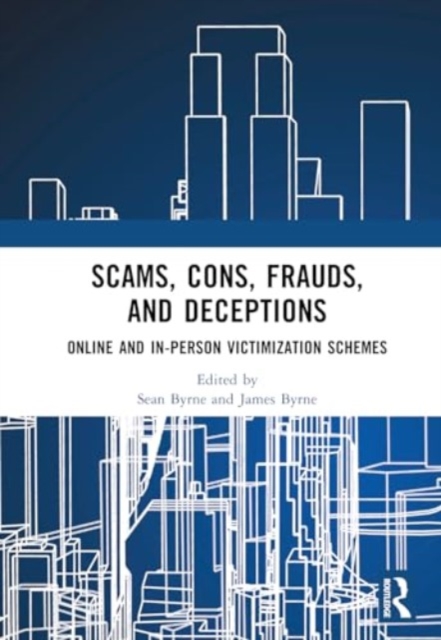
Scams, Cons, Frauds, and Deceptions : Online and In-person Victimization Schemes Hardback
Edited by Sean (Boston University, USA) Byrne, James (University of Massachusetts Lowell, USA) Byrne
Hardback
Description
This unique volume presents cutting-edge research on the nature and extent of a wide range of scams, cons, frauds, and deceptive activities, including sextortion, the use of ransomware, phishing, identity theft, Ponzi schemes, online shopping fraud, gift card scams, and health care fraud targeting elderly victims.
The contributions to this book raise and attempt to answer several intriguing questions:Why have governments in each global region failed to respond more aggressively to these crimes?
What can/should the private sector and social media giants be doing?Can the current responses of both governments and the private sector be linked to the public’s ambivalence about how to respond to these forms of offending and victimization?Does a large segment of the public admire individuals who get involved in these activities, in large part due to the positive portrayal of scammers, fraudsters, and con artists in both literature and cinema?Or does the public’s view of the harm caused by these scams and cons vary, based on our view of who is victimized (e.g., individuals or corporations) and/or why they were chosen?Will governments – as they have done in the past – attempt to influence the public’s views by restricting access to books and movies that focus on the latest scams, cons, and frauds taking place on-line and in-person via book banning and other forms of censuring?And finally, should this discussion of the influence of books and cinema on the public’s views of scams, frauds, cons, and deception be broadened to include the government’s ongoing attempts to censure a wide range of books and films that may influence the public’s view of morality—and more recently, the public’s view of our government—due to their content?Timely and thought-provoking, this book will be a key resource for researchers, scholars, and practitioners in criminology and criminal justice, sociology, law, psychology, and social work, while also appealing to interdisciplinary researchers seeking insight into the relationship between positive portrayals of scammers, fraudsters, and con artists in literature and cinema, and the public’s perception of individuals who get involved in these activities.
It was originally published as a special issue of Victims & Offenders.
Information
-
Pre-Order
- Format:Hardback
- Pages:244 pages
- Publisher:Taylor & Francis Ltd
- Publication Date:28/06/2024
- Category:
- ISBN:9781032756455
Information
-
Pre-Order
- Format:Hardback
- Pages:244 pages
- Publisher:Taylor & Francis Ltd
- Publication Date:28/06/2024
- Category:
- ISBN:9781032756455






